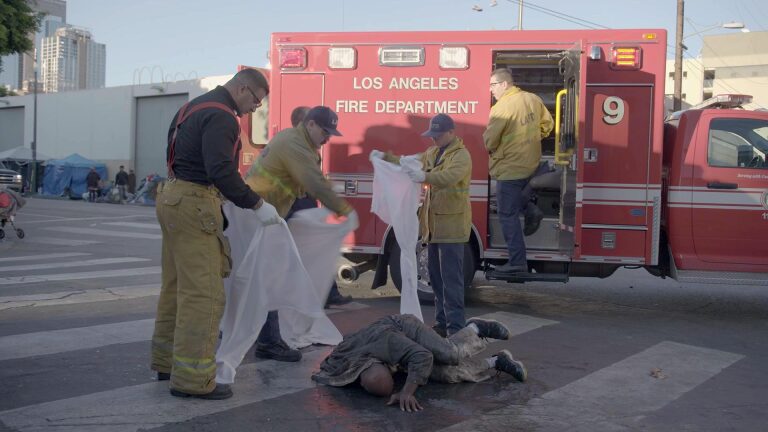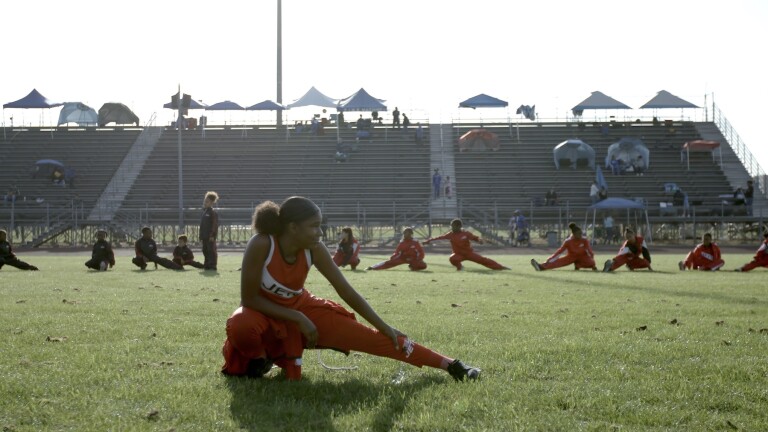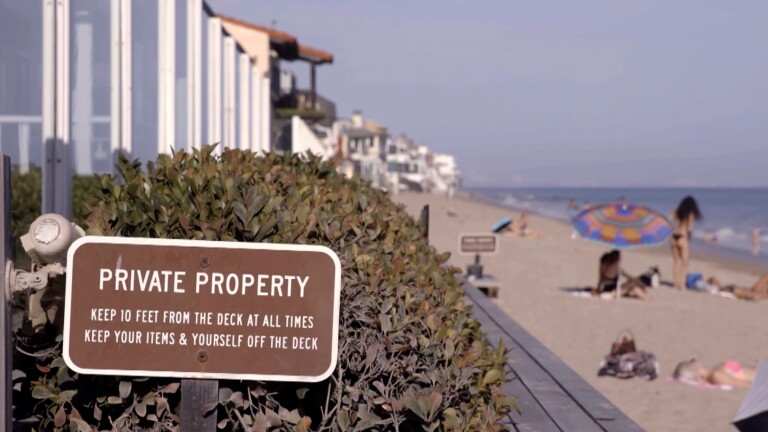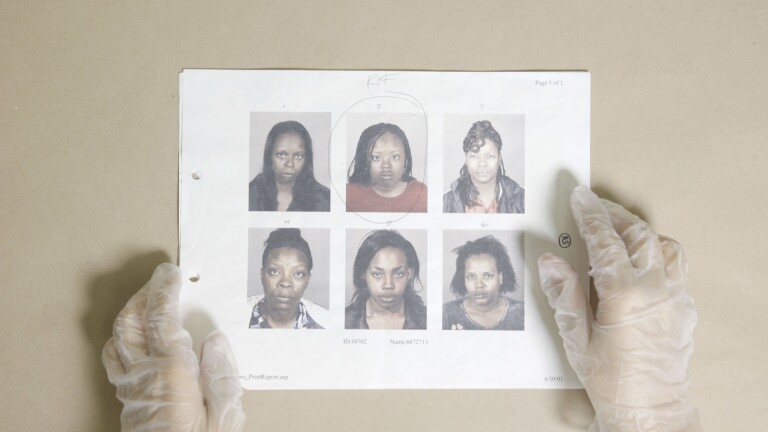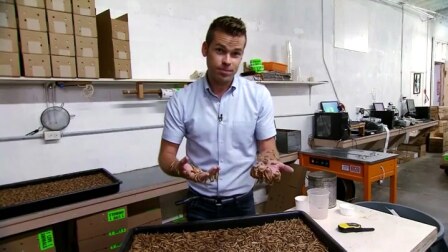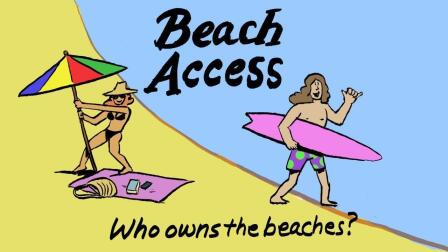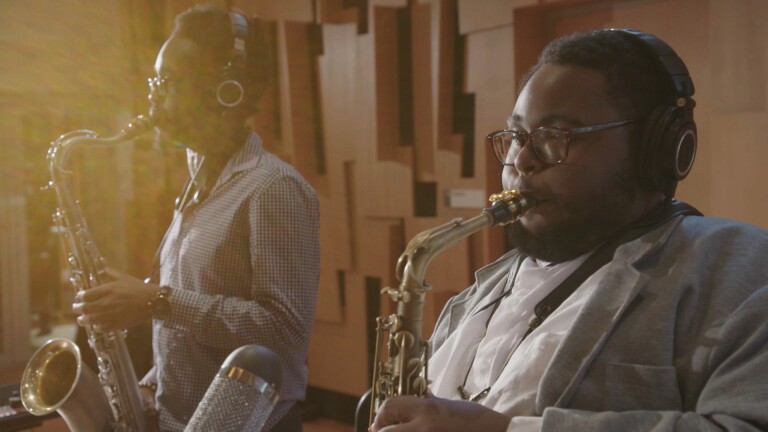
Bringing Conversations About Death to Life
American culture has a strained relationship with death and dying. It carries a heavy taboo, so we often wash our hands of it, leaving the after-death particulars to hospitals and funeral professionals. But why do we wait to deal with the difficult, painful decisions surrounding death until our judgment is clouded by grief? Why do we find comfort in avoiding the inevitable?
Reporter Cara Santa Maria explores how some Angelenos are bringing conversations about death to life. The "positive death" movement is empowering people to challenge and question traditional practices around death and dying, including how and when to prepare for death.
WEB EXTRA: How Caitlin Doughty is Rethinking Death
Cara visits Caitlin Doughty, a Los Angeles-based mortician and author of "Smoke Gets in Your Eyes, and “Other Lessons from the Crematory." Doughty advocates for alternative death practices, and offers services like in-home funerals and green burials.
Cara also meets Laurel Lewis, a registered nurse who has been hosting regular dinner parties where guests can openly discuss death and grieving in an intimate, judgment-free space. For many, it's a transformative experience, allowing attendees to cry, laugh, share, and most importantly, feel.
Featuring Interviews With:
- Caitlin Doughty, mortician
- Laurel L. Lewis, host, Death & Dying Dinner Parties
Transcript
Cara Santa Maria: We don’t often contemplate our own mortality. Perhaps it's a cultural pressure to only face our fears when we find ourselves gripped by tragedy. Truth is, death in this country is distant, removed. We’ve relegated it to hospitals and nursing homes and mortuaries. Why do we find comfort in avoiding the inevitable in keeping death at arms length, until it’s often too late? To better understand this cold relationship we have with death and dying, I visited Caitlin Doughty, a mortician who advocates for alternative death practices. She told me it hasn’t always been this way.
Caitlin Doughty: American death 200 years ago, 150 years ago, was the family taking care of the dead body. But something that happened at the turn of the 20th century is that professionals came in (or men who declared themselves professionals came in) and said, ‘Actually you're not qualified to take care of the body. That's how the funeral home system in the United States was born.
Cara Santa Maria: Like most people, I thought embalming was a long-standing ritual in America, dating back to Egyptian mummification almost five thousand years ago. But Caitlin says this practice is much more modern, and often unnecessary.
Caitlin Doughty: It is very modern. It started in the American Civil War. Northern soldiers were dying on the southern battlefields and the families wanted their dead bodies back. So what they did is men would come on to the battlefield, they would embalm the body they would put chemicals into the body that would allow the bodies to be put onto trains and could be taken back to the north and still be okay. And that was a great invention. It helped the families grieve and see the bodies. But it became almost the status quo in the funeral industry. Now we do it regardless of if the body is just going to be cremated the next day or whether or not the family even wants it often times.
Cara Santa Maria: Today, it’s big business. Americans spend more than 20 billion dollars a year, with the average funeral costing between 8 and 12 thousand dollars. But, Caitlin says it doesn’t have to be this way.
Caitlin Doughty: What a lot of people don't know is that you can have a big wake with the body dressed up, laid out, flowers, people come in, food...but if you have it at home it is free. It is completely free and then you call the crematory to do the death certificate pick the body up do the cremation that's roughly to $800 to $1000 dollars at a lower cost place and boom that's your funeral.
Cara Santa Maria: Caitlin’s non-profit funeral service, Undertaking LA, is working to spread the word that losing someone you love can be a beautiful and transformative experience.
Caitlin Doughty: We are saying to the family of the person who has died, ‘We want you involved. And we want you involved as much or as little as you are comfortable.’ A lot of our clients just want to be told it is okay to keep mom in the home for 12 hours for 14 hours. ‘Til the next morning. ‘Til the next day. ‘Til they are comfortable letting her go. And we have the ability to tell them, ‘Yeah absolutely. We not only encourage that. It's legal. It is safe. The dead body is not going to hurt you in any way. It is not dangerous
Cara Santa Maria: Caitlin and her partner Amber also offer green burial services...green, meaning they use natural wicker coffins like this one. And they’ll soon be hosting workshops to encourage conversations around death so we are better prepared when we, or someone we love, must confront the inevitable.
Caitlin Doughty: Having open conversations about death and dying whether it is with a therapist or a friend or a group of friends is absolutely essential.
Cara Santa Maria: Caitlin’s words really resonated with me. I heard about a woman who hosts “Death and Dying” dinner parties. I was intrigued. What better way to face my fears than spending an entire evening talking about death? Laurel Lewis is a registered nurse who’s made it her mission to help people through this difficult time. She’s been hosting these dinners for nearly six years.
Laurel Lewis: This table has a reputation in the L.A. area as a place to come and really share ideas in a really intimate, sacred, open, supportive way, where people don’t feel judged. Often times people come to the table and make a revelation that they've never expressed before even to their partners.
Cara Santa Maria: I knew I was in for the type of conversation people so often avoid. And there was something oddly welcoming about that. After a brief meditation, we introduced ourselves.
Laurel Lewis: I’m Laurel and my intention is to really help support you and really realizing your intentions to be open to be clear to be a loving presence to really see you and hear you // and to guide us on the conversation wherever it might take us.
Chi Sarage: Hi, my name is Chi and my intention for this evening is to listen with my heart and share from my heart and what's got me really fired up this year is just being here. Being here at this at this dinner and being here on Earth. Honestly. I lost my mom in 2007 to colon cancer and then I recently lost my dad to lung cancer.
Cara Santa Maria: We each had our own reasons for attending--I was no exception. I wonder how equipped I will be when I do lose somebody. Because I wonder if I will just try to solve all of the problems around--Well I know that will happen. I know I’ll be the one on the phone with the funeral people and I’ll be that is so true. But when will I grieve? When I do grieve, how will I grieve? And I also, I guess I wonder from people at the table who have experienced that if you thought you would be ready for it, and also when it happened if you ever had a moment where you’re just like, ‘it’s not worth it. Like, I don’t think I can get through this.’
Laurel Lewis: Oh yeah. I think maybe by a show of hands -- of people who couldn't get through it in the middle of it.
Cara Santa Maria: And right then, I knew I wasn’t alone. As we filled our bellies with home cooking, we shared. And listened. And felt. Jesse told us what happened after his mother died.
Jesse Marcus: I went to the beach. And I went by myself and I walked to the water and I said umm just show me a sign and I had a little bit of a piece of paper. I was going to write something and burn for my mom and I lost it so I was looking around and I was like "ah I can't even do it you know" and I'm waiting I'm waiting I'm waiting and I am thinking I'm stupid and nothing is going to happen. And I go down to the water line and look and in huge letters (breaks down) right in the sand is "Love Mom." And there are no footprints. I was like looking is someone swipe it away did someone write it with their feet and jump out. Like my mind was just crazy and I was trying to grab what happened.
Cara Santa Maria: The conversation flowed from heartache to humor and back again.
Kanoe Wheeler: My dad died four days before my 8th birthday. And he was and is the sun and the moon and the stars. And he died suddenly and so one night he tucked me into bed and the next morning he wasn't there. Hey, I still miss him I still cry I never thought my relationship with my dad would be this strong. I didn't know that the love could be this strong 41 years later.
Bristol Baylor: I remember right after my dad died and I couldn't really be around the positive death people. But now I am one of them and so it’s so funny. Like I can feel in the pain and I get it, how rich it makes everything.
Cara Santa Maria: As the evening drew to a close, I began to understand how important it is to engage with death, with grief, with reflections on our own mortality. And in the safety of this dinner table, I began to feel just a little less afraid. I’m Cara Santa Maria, for “SoCal Connected.”

